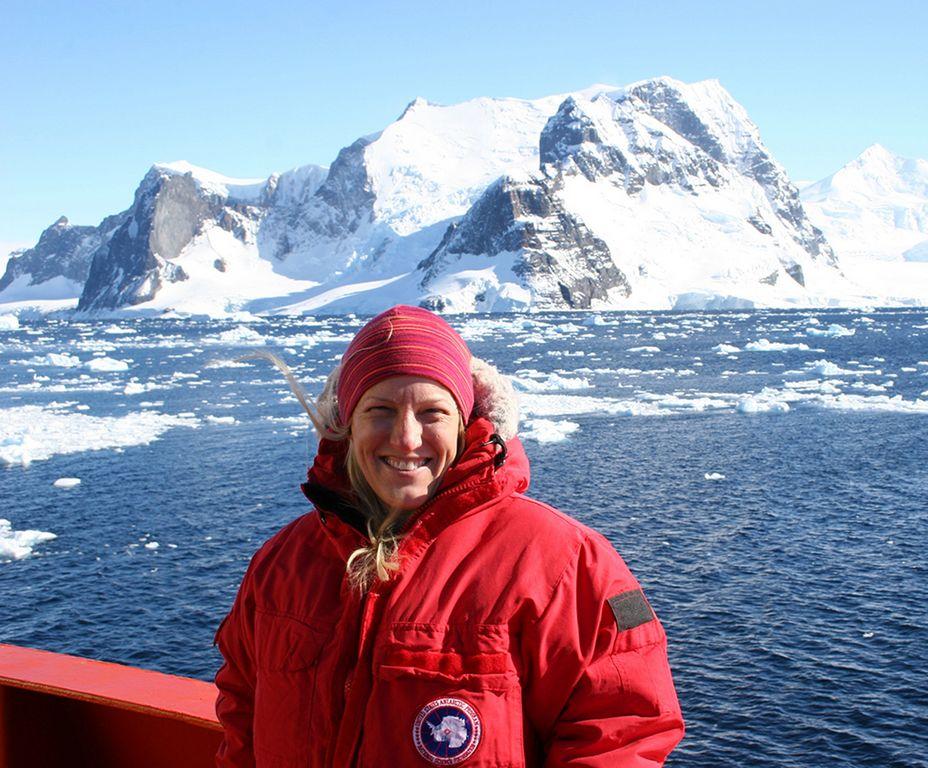By G. Wayne Miller
The Providence Journal, R.I.
WWR Article Summary (tl;dr) A grant from the National Science Foundation to promote hiring and retention of women in the STEM has done wonders for the success of female scientists in Rhode Island. Three females will lead expeditions this year, thanks in part to the funding.
SOUTH KINGSTOWN
Three University of Rhode Island scientists, all women, will lead expeditions to Antarctica this academic year. The university cites their missions as the latest evidence of success in its effort “to recruit more women to science faculty positions and create a welcoming environment for them.”
And for that, the school says, credit is partly due to an Advance grant from the National Science Foundation to promote hiring and retention of women in the STEM disciplines: science, technology, engineering and mathematics.
The three Antarctic expeditions will be for research into the biology of diatoms, the microscopic algae that are essential to the ocean’s role in regulating global climate — and in synthesizing some of the oxygen that people breathe. All of the expeditions will be supported by the research vessel Nathaniel B. Palmer, an ice-capable ship chartered by the National Science Foundation.
Bethany Jenkins, associate professor of cell and molecular biology in URI’s College of the Environment and Life Sciences and a Graduate School of Oceanography teacher, is heading a 37-day expedition that leaves Punta Arenas, Chile, on Wednesday. Her 13-member team includes three URI doctoral students and Quincy, Mass., high-school teacher Cara Pekarcik.
“I’m super excited that this scientific expedition is being led by three female scientists in partnership with a local teacher,” Jenkins said. “This is an opportunity for us to serve as role models for the next generation and to show that the National Science Foundation and the U.S. Antarctic Program support broad participation in polar research.”
On the day before Christmas, GSO professor Tatiana Rynearson will leave Punta Arenas with a planned arrival Jan. 20 at McMurdo Station in Antarctica. The seven-member team includes two GSO students and a URI undergraduate. Three days later, fellow GSO professor Rebecca Robinson will push off on the third expedition.
The project is in collaboration with the Metcalf Institute for Marine and Environmental Reporting. Rynearson’s research will be presented to journalists at a later date.
According to URI, a $3.5-million Advance grant from the National Science Foundation received in 2003 set the stage to increase women’s presence in the school’s STEM fields.
“With additional contributions from the university,” the school said, “the funding total rose to $4.2 million to increase the number of tenured women scientists and engineers, to support existing women faculty with career development and training opportunities, to improve social supports, to promote awareness of issues faced by women in science and engineering” and more.
At the start of the Advance program, there were 44 full-time women faculty at URI in STEM fields, just 18 percent of all STEM faculty, the school said; today, there are 81 women who are tenured or on a tenure track in STEM disciplines.
Overall, women now comprise 28 percent of URI’s STEM faculty, “compared to the national average of 25 percent as of 2013, according to the National Science Foundation,” according to the school.
“The Advance program really helped show how stellar and capable these women scientists are, and it helped dispel the myth that women scientists are inferior to their male colleagues,” said Barbara E. Silver, an associate professor of research in URI’s Schmidt Labor Research Center, who wrote the original grant proposal.
“They’ve been so successful and it might not have been possible to hire them without the funds provided by this grant.”














































































































































































































































































































































































